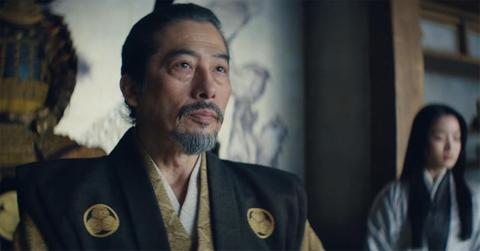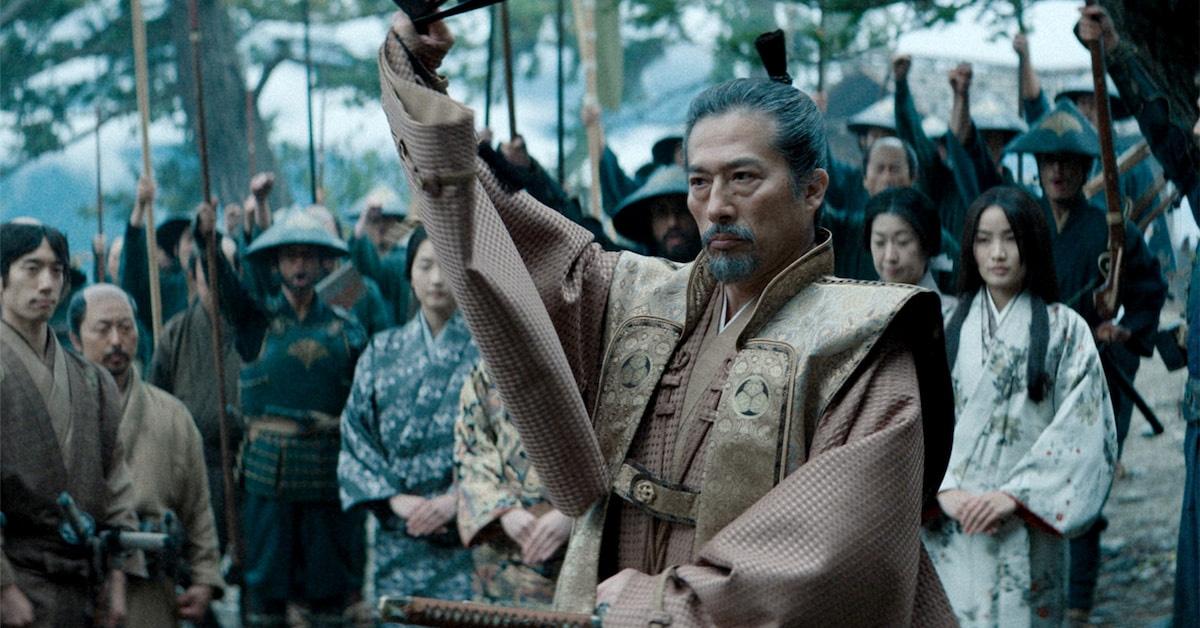'Shōgun' Is a Major Hollywood Production, but It's Almost Entirely in Japanese
"I feel like in this day and age, audiences are more open to reading subtitles, and seeing actors who speak their native language deliver the performance," the producer said.
Published Feb. 28 2024, 11:10 a.m. ET

While the vast majority of Hollywood TV productions are in English, even when they are ostensibly set in other parts of the world, there are some shows that choose to tell their stories in other languages. This decision can be made for a variety of reasons, but it's undoubtedly the more authentic choice for many stories set outside the English-speaking world.
Shōgun, FX/Hulu's new series which premiered in February 2024, is one show that contains a lot of Japanese dialogue, which makes sense given its setting. Following the premiere of the first few episodes, though, some are wondering whether the show is entirely in Japanese.

Is 'Shōgun' all in Japanese?
Shōgun is not entirely in Japanese, but the vast majority of the show's dialogue is in Japanese, because the vast majority of the show's characters are Japanese, and living in Japan. The show is set in Japan in the year 1600, and tells the story of a feudal Japanese lord who is fighting for his fiefdom against the Council of Regents as a mysterious European ship is found off the coast of Japan.
So, while there are some English-speaking characters on the show, the vast majority of the show's cast is Japanese, and speaks Japanese. Given that the show is about Japanese history, this was a choice that the show's producer Eriko Miyagawa said jibed with the rest of the show's philosophy.
"It feels like if the show was made 10, 15 years ago, perhaps the decision would lean more on the English language," she told Town & Country.
"I feel like in this day and age, audiences are more open to reading subtitles, and seeing actors who speak their native language deliver the performance. The time was calling for this level of authenticity."
Rachel Kondo, one of the show's co-creators, added that they were grateful that FX had given them the runway to be able to keep the series as authentic as possible.
The Japanese "is an aspect of the show that we are most proud of," Rachel explained. "We are so grateful to FX for entrusting us with the process of learning how to do that and for having the faith in it."
"To deny these characters — to deny our story the sophistication that would require us to understand what these Japanese characters are saying, and thus to have it subtitled — would be to sort of cut us at the knees in terms of how interesting this story could be," co-creator Justin Marks added.
Justin also said that keeping the dialogue in Japanese underlined what the story is ultimately about.
"This is a show about translation," he said. "This is a show about the process by which we don't really fully understand what is being said and then learn, or watch someone translate, giving their angle for what they want. I don't know how you do that if you're substituting it all for English."
As TV gets more and more international, subtitles are going to become more and more common. While it may be a hurdle for some, for many others, it signifies a broadening of the kinds of stories TV can tell.